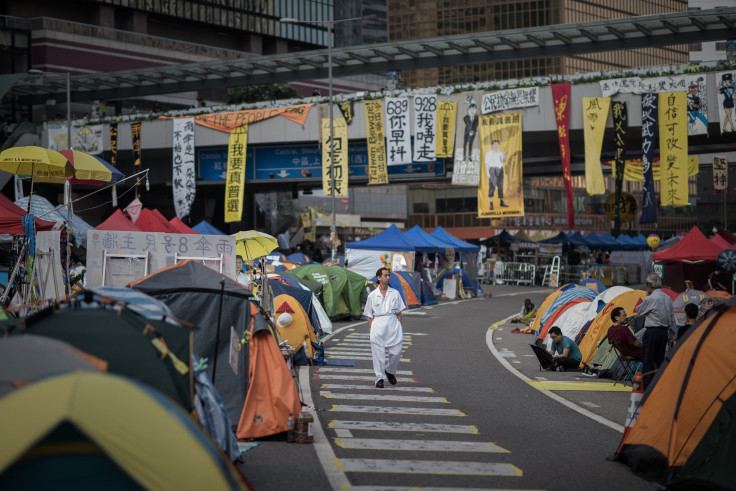Hong Kong Protests: Tung Chee-Hwa Tells Students Beijing's Position On Free Elections 'Will Not Change'

A former Hong Kong chief executive dismissed a proposal to act as an intermediary between student protesters and Chinese authorities, according to local media reports.
Tung Chee-hwa dismissed the request he received in a letter from student protesters. "Mr Tung points out the central government understands the different views in Hong Kong," his spokesman told the South China Morning Post. "The decision of the National People's Congress on Aug. 31 will not change."
“[Tung] thinks [the students] are just repeating their views and stance in the letter, which won't help to break the impasse," the spokesman added.
Student groups however retained some hope, as Tung's response seeming did not contain an explicit refusal to refuse to facilitate a meeting with Beijing officials, according to local broadcaster RTHK.
Protest leaders had considered trying to crash the Asia-Pacific Economic Cooperation, or APEC, summit, which starts in Beijing tomorrow, but instead chose to reach out to Tung with an open letter.
Tung is a vice-chairman of the Chinese People's Political Consultative Conference, an advisory body to China's National People's Congress, the country's primary legislative body, and was the first man appointed to the post of Hong Kong's chief executive following the return of the country from British to Chinese rule in 1997.
He is currently leading a delegation of 60 business officials to APEC, to discuss the region's political an economic future.
Protesters have occupied roads in three areas of Hong Kong for almost six weeks, demanding that the city's next chief executive, who heads the semiautonomous region's government, be elected according to “international standards” of democracy and without political interference from Beijing.
While protesters numbered up to 100,000 at one point, a much smaller number now remain. Despite the relatively reduced numbers, attempts by police and opponents of the protest to clear occupiers from the streets have prompted numbers to briefly surge when the movement appears to be under threat.
Up to 9,000 protesters swarmed the site at Mong Kok on Oct 18., after police removed barricades and attempted to re-open the road to traffic. Just a few hundred had held the site before the police action, and after the threat of removal faded, numbers dwindled again.
Josuha Wong, the 18-year-old leader of the Scholarism group, which has been at the forefront of the movement, told the Wall Street Journal: “This is very normal. We are all human beings, not supermen. The key is let the people rest a bit for one or two days and they would come back again... We will not vacate the streets until our demands are met,” he said.
The next flashpoint between demonstrators and authorities may come next week, as a judge in Hong Kong is expected to rule Monday that police will back up bailiffs sent to enforce injunctions against the protesters, demanding that the streets be cleared.
© Copyright IBTimes 2024. All rights reserved.






















